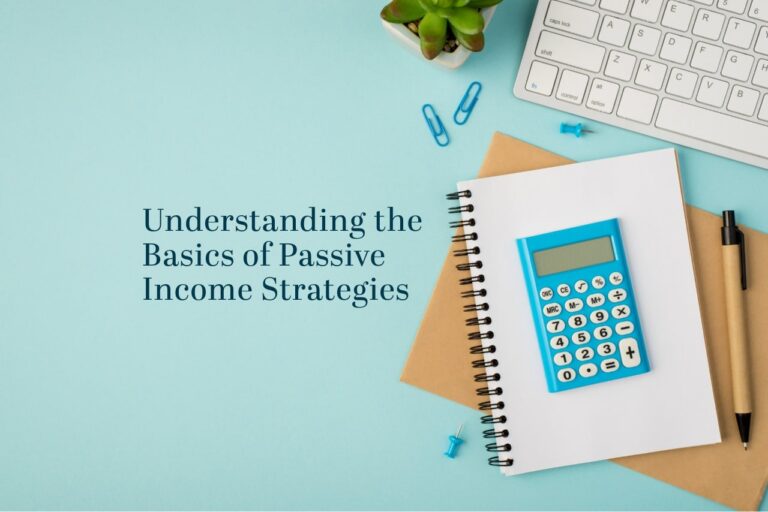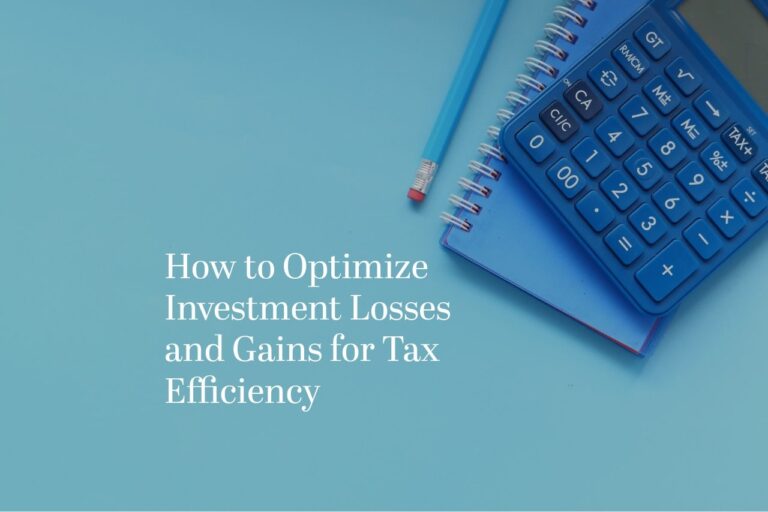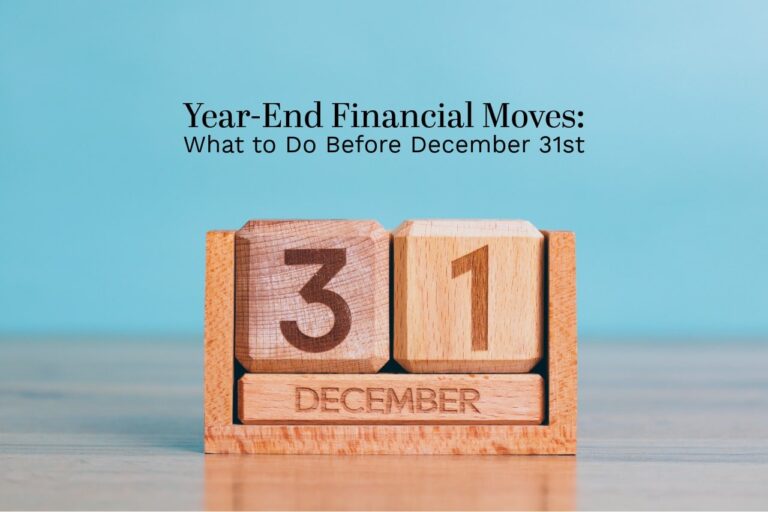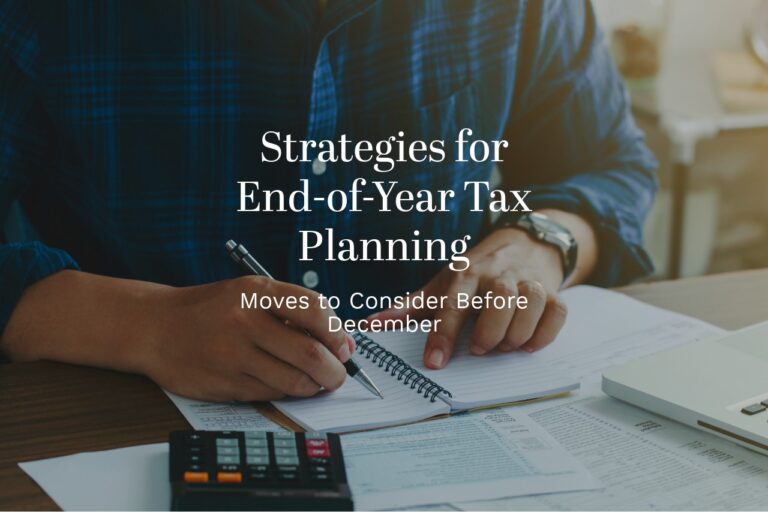Revisit, Revise, and Strengthen Your Financial Plan for the Remainder of 2024
Planning for retirement demands a lot from us – and it’s not a one-time job. Whether it be our time, energy, or financial resources, our retirement needs are always evolving, and we must nurture our savings consistently over the years. If you’ve been taking a more hand-off, set-and-forget approach recently, the middle of the calendar year offers a timely opportunity to reflect, reassess, and make any necessary changes so that you can strengthen your financial foundation for the next six months and beyond. If you’re unsure where to start, try using this mid-year retirement planning checklist to kickstart the process.
Mid-Year Retirement Planning Step #1. Know Where You Stand
The first step of this retirement planning checklist isn’t focused specifically on retirement. That’s because, before you can strengthen your retirement plans, you must first gain a clear understanding of your overall financial situation. This can be a great source of anxiety, especially if you haven’t closely examined your finances in a while. However, you’ll feel better once you know exactly where you stand. Begin by collecting all relevant documents pertaining to your bank accounts, outstanding loans, debts, and any other elements contributing to your financial landscape. This will help you to compile a detailed list of your assets and liabilities, forming the cornerstone for subsequent steps in our retirement planning checklist.
Mid-Year Retirement Planning Step #2. Clarify Your Retirement Goals
Now that you know where you’re starting from, it’s time to determine your desired destination. That means you’ll need to clearly outline your retirement goals. Ask yourself questions such as when you plan to retire, what type of lifestyle you envision, and which activities you want to pursue. Establishing specific and measurable goals will help tailor your savings and investment strategies to meet your unique retirement objectives.
Mid-Year Retirement Planning Step #3. Review and Adjust Your Budget
If the first two steps were about determining where you’re beginning and ending, this step is dedicated to constructing a roadmap that will lead you to your final destination – your dream retirement! Regardless of how financially secure you believe yourself to be, adhering to a budget is imperative to remain on the right path to achieving your objectives. If you find yourself uncertain about where to begin or concerned about staying disciplined, there are numerous helpful apps and online resources available to assist you through each stage of the process.
Mid-Year Retirement Planning Step #4. Maximize Account Contributions
Now that you’re on your way, be sure that you’re taking advantage of any employer-sponsored retirement plans, such as 401(k)s or 403(b)s, by contributing the maximum amount allowed. These contributions not only reduce your taxable income but also grow tax-deferred until withdrawal. If you’re self-employed or your employer doesn’t offer a retirement plan, consider opening an Individual Retirement Account (IRA) and contributing regularly. Even if you think you have your contributions set, use this step in the retirement planning checklist to assess whether you can contribute more to max out your options.
Mid-Year Retirement Planning Step #5. Rebalance Your Portfolio
While investing is one of the best ways to build wealth, it doesn’t come without risk. Take some time now to diversify your investment portfolio to mitigate risk. Consider a mix of stocks, bonds, and other assets that align with your risk tolerance and retirement timeline. Don’t forget to periodically rebalance your portfolio to maintain an optimal asset allocation and adjust it as needed based on changing market conditions and your risk profile. A financial advisor can be helpful as you navigate this step in the retirement planning checklist.
Mid-Year Retirement Planning Step #6. Fortify Your Emergency Fund
No matter how prepared you are, there’s always the chance that something unexpected could happen, leaving you with a bill that you weren’t ready to pay. To help protect your retirement savings, it’s important that you have a solid emergency fund set aside. Generally, you want to aim to have at least three to six months’ worth of living expenses set aside in a liquid and easily accessible account. This fund will serve as a financial safety net, preventing you from dipping into your retirement savings in times of unexpected expenses.
Mid-Year Retirement Planning Step #7. Plan for Healthcare Costs
Health expenses often increase in retirement, making them one of the biggest threats to retirees’ financial security, so it’s crucial to plan for healthcare costs. Review your current health insurance coverage and consider supplemental insurance, such as long-term care insurance, to provide additional protection. If you’re not yet eligible for Medicare, use this step in the retirement planning checklist to explore other healthcare options to bridge the gap.
Mid-Year Retirement Planning Step #8. Get Serious About Your Debt
High-interest debt can erode your retirement savings, so strive to enter retirement debt-free or with minimal debt. To achieve this, develop a plan to pay off outstanding debts, focusing on high-interest debts first. This will free up additional funds for retirement savings and ensure a more stable financial future.
Mid-Year Retirement Planning Step #9. Choose a Social Security Benefits Strategy
Social Security benefits can significantly boost your income in retirement, especially when you get strategic about how you claim them to begin with. For instance, delaying the start of your benefits can lead to higher monthly payments. So, take some time to familiarize yourself with Social Security benefits and strategize the optimal time to claim them based on your financial situation. You’ll want to consider factors such as your health, life expectancy, and overall financial situation when deciding.
Mid-Year Retirement Planning Step #10. Reassess Your Estate Plans
Estate planning helps you make certain that your assets are distributed according to your wishes, minimizing potential complications for your loved ones. Don’t forget to update or create essential estate planning documents at this point in your retirement planning checklist. This includes wills, trusts, and powers of attorney. Life changes quickly at times, so it’s important that you regularly review and designate beneficiaries for your retirement accounts and life insurance policies.
Remaining Hands-On with Your Retirement Plan Throughout the Years
Retirement planning is a continuous process that requires careful consideration and adjustment. By taking time mid-year to use a comprehensive checklist, you lay the groundwork for an enjoyable retirement. Be sure that you’re regularly revisiting and updating your retirement plan to adapt to changing circumstances, ensuring that you stay on track to achieve your financial goals. Remember, the key to successful retirement planning is proactive and informed decision-making.
Illuminated Advisors is the original creator of the content shared herein. I have been granted a license in perpetuity to publish this article on my website’s blog and share its contents on social media platforms. I have no right to distribute the articles, or any other content provided to me, or my Firm, by Illuminated Advisors in a printed or otherwise non-digital format. I am not permitted to use the content provided to me or my firm by Illuminated Advisors in videos, audio publications, or in books of any kind.








